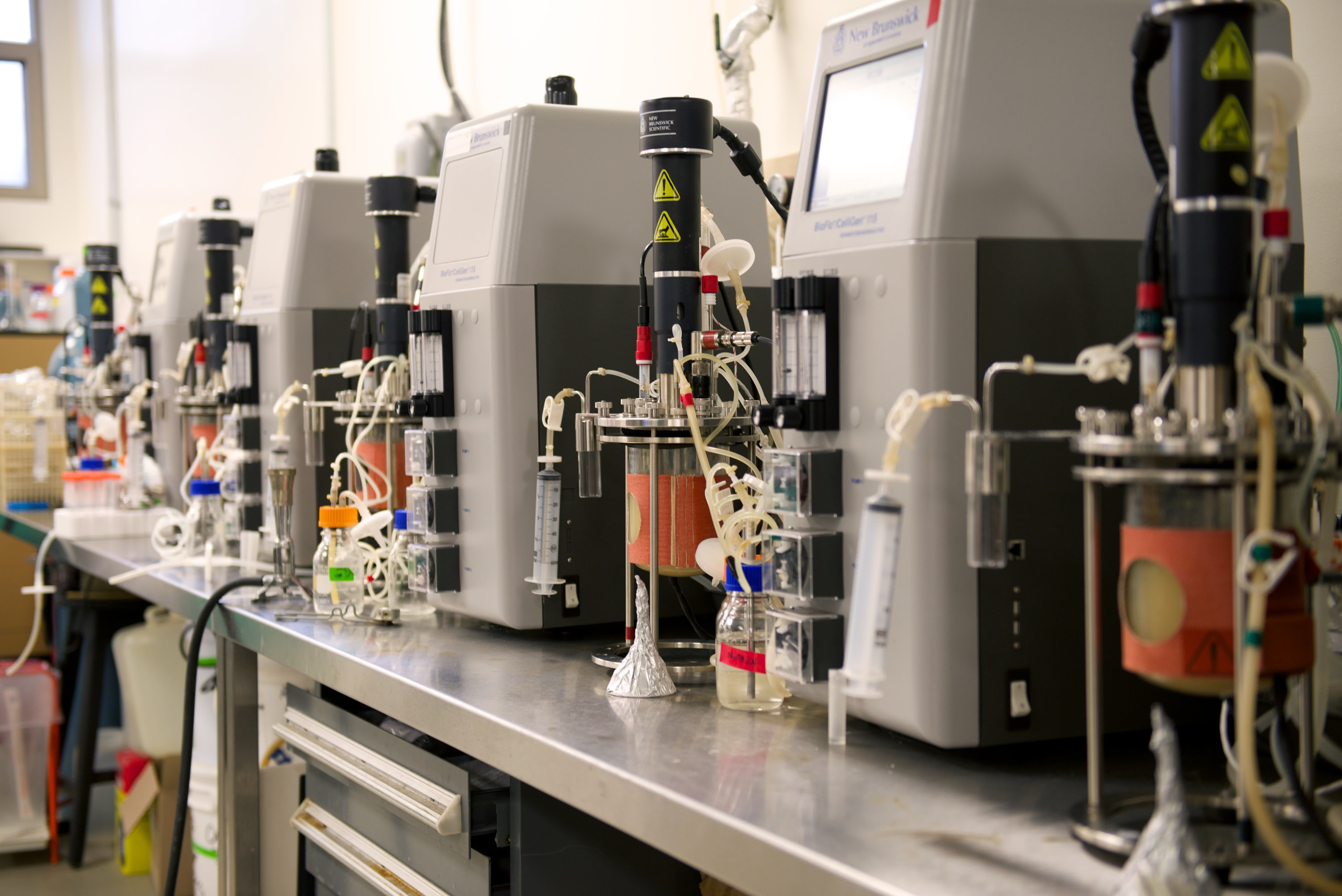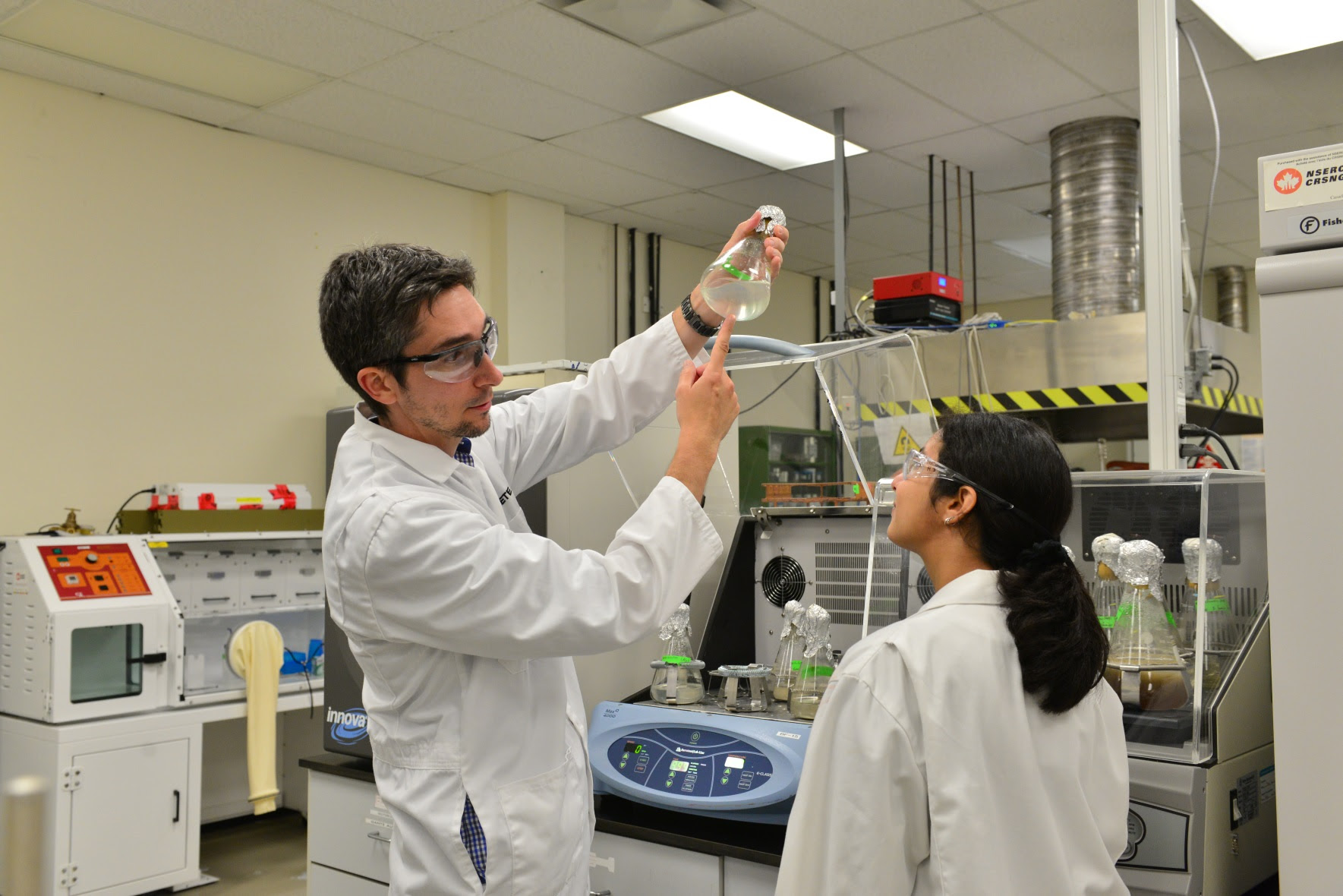Jean-François Lemay
Winner of the Acfas Denis-Barbeau Award, biologist Jean-François Lemay produces proteins for university researchers and companies. They have many uses, including detecting whether a person has had COVID-19.
When he was young, Lemay often amused himself by mixing vinegar and baking soda to observe the chemical reaction. “I wasted a lot of it,” laughs this molecular biology researcher at the National Centre for Electrochemistry and Environmental Technologies (CNETE), affiliated with the Cégep de Shawinigan, who has just received the Prix Acfas Denise-Barbeau 2021 for college research.
Currently, biologist Jean-François Lemay has become a respected authority in the scientific world; he specializes in the isolation, identification, genetic modification and monitoring of microorganisms. Expertise that he put to good use when COVID-19 took the planet by storm. With his team, he thought of producing proteins that could help fight the SARS-CoV-2 virus. He eventually focused on the N (nucleocapsid) protein. Why is it so important?
A quick explanation, COVID-19 vaccines target the S protein that allows the virus to infect our cells. This means that people who are vaccinated develop antibodies to block this protein. But the virus contains other proteins, including N. This protein is found in people who have contracted COVID-19 – which allows seroprevalence studies to distinguish them from vaccinated people who have never been infected.
 We first isolate a yeast clone (Pichia pastoris) possessing the gene of the enzyme requested by the partner. Once the microorganisms have been selected for a bioprocess, it is important to optimize the physicochemical conditions (e.g. temperature, ph, agitation, aeration, the composition of the culture media) in order to increase the production of the targeted biomolecule. Five two-litre bioreactors are shown here. Several simultaneous fermentation trials allow confirming the optimal conditions in a short time.
We first isolate a yeast clone (Pichia pastoris) possessing the gene of the enzyme requested by the partner. Once the microorganisms have been selected for a bioprocess, it is important to optimize the physicochemical conditions (e.g. temperature, ph, agitation, aeration, the composition of the culture media) in order to increase the production of the targeted biomolecule. Five two-litre bioreactors are shown here. Several simultaneous fermentation trials allow confirming the optimal conditions in a short time.
Recreated from scratch in the laboratory by Jean-François Lemay’s team, the N protein is now used for various purposes. It is used in a screening test that can determine in a few minutes whether or not a person is an antibody carrier; it is used by the Héma-Québec blood bank to monitor the progress of Quebecers’ immunity, and it will contribute to the development of new vaccines against COVID-19.
This product, this “100% Québec” protein, has proven to be more effective than generic proteins. “It’s always better for researchers to have their proteins produced here because it’s less expensive than ordering them from abroad, but also because we can create a DNA sequence according to their specific needs,” explains Jean-François Lemay. This sequence is then inserted into a bacterium or yeast that allows for the overexpression of the protein of interest, and the researcher then purifies it.
In 2019, biologist Jean-François Lemay was producing proteins for other fields, including food, cosmetics and pharmacology. Despite the crisis, these projects continue.
“For example, I degrade large molecules such as chitosan, found in shrimp shells, into small molecules that have a greater added value. I also produce proteins to counteract eye disorders and chronic inflammatory bowel disease, among other things.”
With such a large playground, we can bet that Jean-François Lemay will not lack ideas to find solutions to tomorrow’s challenges.
This product, this “100% Québec” protein, has proven to be more effective than generic proteins. “It’s always better for researchers to have their proteins produced here because it’s less expensive than ordering them from abroad, but also because we can create a DNA sequence according to their specific needs,” explains Jean-François Lemay. This sequence is then inserted into a bacterium or yeast that allows for the overexpression of the protein of interest, and the researcher then purifies it.
In 2019, biologist Jean-François Lemay was producing proteins for other fields, including food, cosmetics and pharmacology. Despite the crisis, these projects continue.
“For example, I degrade large molecules such as chitosan, found in shrimp shells, into small molecules that have a greater added value. I also produce proteins to counteract eye disorders and chronic inflammatory bowel disease, among other things.”
With such a large playground, we can bet that Jean-François Lemay will not lack ideas to find solutions to tomorrow’s challenges.



Comment here